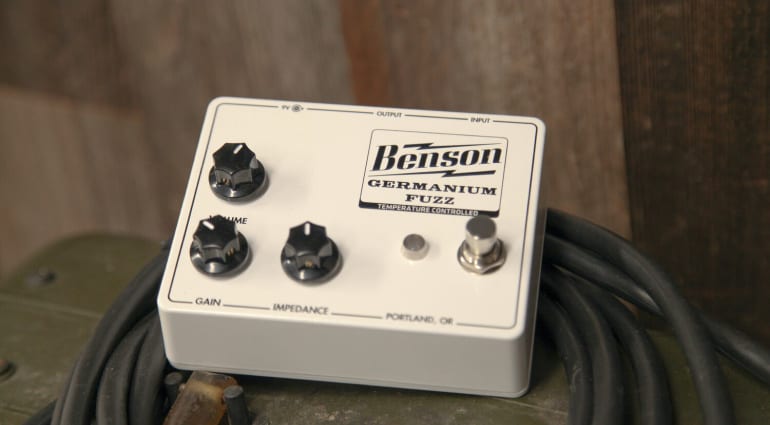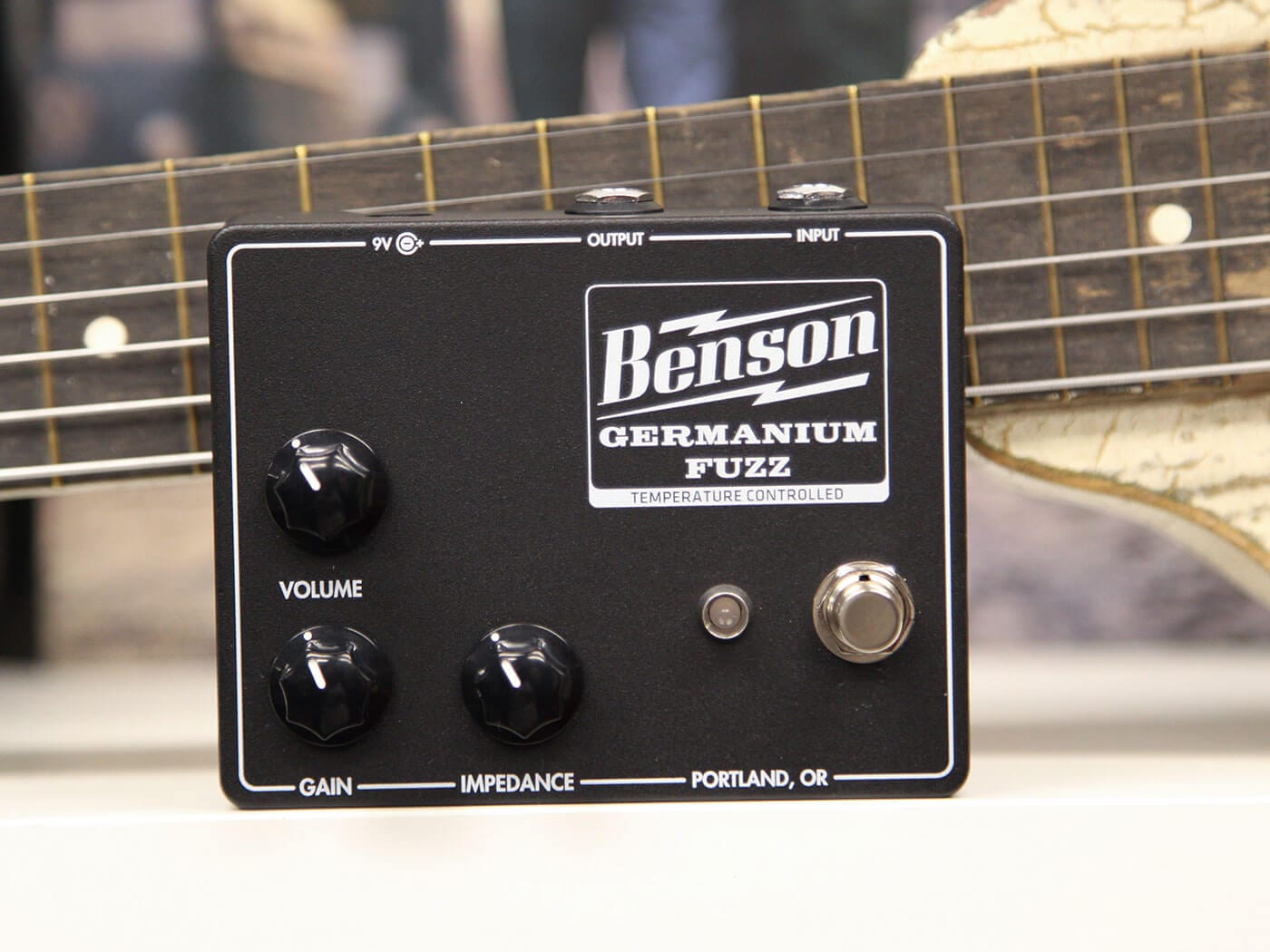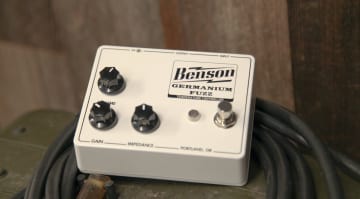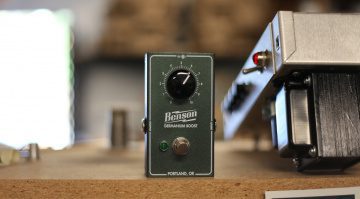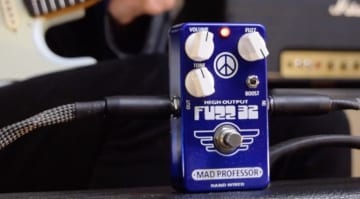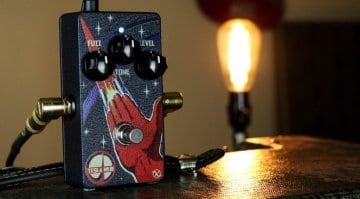Benson Amps’ Germanium Fuzz uses thermal biassing for consistent ’60s fuzz tones
Benson Amps has just announced a new pedal unambiguososly named Germanium Fuzz. Yet another germanium fuzz – do we really need this? Yes! This box has a temperature control that should deal with the annoying sensitivity of germanium components to environmental temperature, keeping your fuzz tone consistent. Let’s check it out.
Benson Amps Germanium Fuzz
Classic ’60s-style germanium fuzz tones sound amazing, but don’t play well with changes in temperature and can sound awful when they overheat. Many players moved to silicon fuzz during the ’70s, as it’s stable and doesn’t suffer from the drift associated with germanium fuzz circuits. The problem? Silicon has a harsher, more in-your-face tone.
For many years, there was no alternative. If you wanted germanium fuzz tones, you had to deal with the idiosyncrasies of this vintage component. I’ve even heard of players keeping their germanium fuzz in the freezer or fridge before gigs to keep them cool.
Thermal Biasing
Fast forward to 2021. Benson Amps has designed a new Germanium Fuzz that incorporates automatic thermal biassing technology to keep the pedal sounding consistent, no matter the external temperature (well, almost). It gently heats the transistors and keeps them at the right temperature. That will deliver consistent fuzz tones from zero °C to 38°C, which is pretty impressive for a germanium pedal.
Christopher Benson developed developed the idea during the first COVID lockdown in 2020. His patent-applied-for tech could make a huge difference for players seeking that vintage germanium fuzz tone without all the temperature-related hassles.
Each pedal contains two germanium 2N527 OR 2N404 Germanium Transistors that have has been carefully matched, graded for gain and checked for any leakage. When you plug the pedal into a 9V power supply, it will take 2-3 minutes on average to sound at its best. But properly warmed up it’s ready to go.
You have controls for Volume, Gain and Impedance. The first two are self explanatory, while the third simulates turning down the volume control on your guitar to get that classic fuzz tone without forcing you to roll your guitar volume down. Older germanium fuzz pedals generally sound better with vintage style, low output pickups. This control helps you simulate this without having to lose your overall volume. A Class A buffer feeds a passive pickup simulator circuit, helping to make it compatible with other pedals.
The pedal will only run via a 9 V centre negative power supply and has an internal trim pot set for the perfect fuzz tone, so don’t open it up and mess with the setting!
The video below gives you an idea of how this new pedal sounds. Head over to the Benson website for full specifications of this new pedal using the link below. Christopher has published a lot of detailed information about his new design there – it’s an absorbing read if you love fuzz pedals.
RRP – USD 299
More Information
Video
You are currently viewing a placeholder content from YouTube. To access the actual content, click the button below. Please note that doing so will share data with third-party providers.
You are currently viewing a placeholder content from YouTube. To access the actual content, click the button below. Please note that doing so will share data with third-party providers.

 3,0 / 5,0 |
3,0 / 5,0 | 